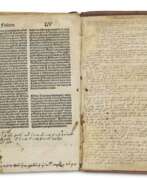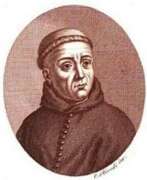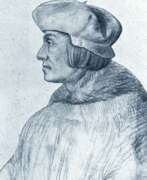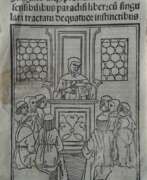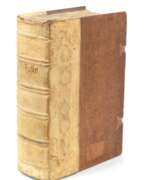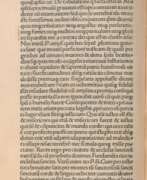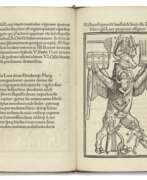Theologians 15th century
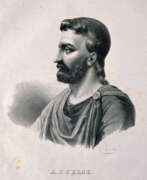

Cornelius Gerardi Aurelius, also called Goudanus, was a Dutch humanist scholar, writer, and historian.
Aurelius was a permanent canon (monk) of the Augustinian monastic order and is one of the first humanists of the Netherlands in the 16th century. He wrote poetry, historiography, hagiography, political and theological works. Aurelius also corresponded with many of the famous men of his day, especially Erasmus.
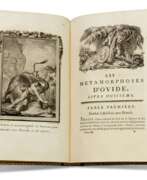

Johannes Busch was a major Dutch clergyman and reformed theologian.
As a monastic reformer and chronicler, the Augustinian canon of Windesheim, Johannes Busch is one of the most prominent figures of the Devotio moderna ("New Piety") movement in Catholicism. With his historiographical works Chronicle of the Monastery of Windesheim and Liber de reformatione monasteriorum he shaped the association of the Windesheim monastery and the late medieval observance movement.
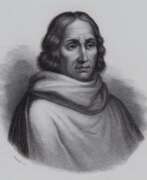

Jean Charlier de Gerson was a French academic, theologian, preacher and politician of the 14th and 15th centuries.
Jean Charlier de Gerson was Chancellor of the University of Paris from 1395 until 1415, and as such played a major role in the political troubles between the Duke of Orleans and the Duke of Burgundy, subsequently known as the Armagnacs and Burgundians, as well as in the crisis arising from the Great Western Schism.
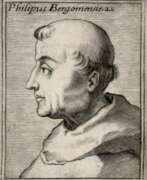

Jacopo Filippo di Bergamo, or Giacomo Filippo Forèsti (Latin: Iacobus Philippus Bergomensis) was an Italian Augustinian monk, theologian and chronicler.
Jacopo di Bergamo was born into a noble family, received his ecclesiastical education at the local monastery, and early showed a penchant for literary work. After traveling in Europe, he took the tonsure and was abbot of monasteries, engaged in their improvement.
He is known as the author of a number of significant early printed works, a chronicler and biblical scholar. His Supplementum chronicarum (1483) is a universal chronicle that survived many subsequent editions. And De claris mulieribus, published in 1497, contains the first account of the voyage of the discoverer Columbus.
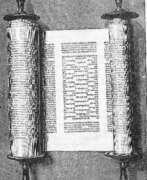

Paolo Ricci (Italian: Paolo Ricci, Latin: Paulus Ricius, German: Paul Ritz), also known as Ritz, Riccio, or Paulus Israelita, was a humanist convert from Judaism, a writer-theologian, Kabbalist, and physician.
After his baptism in 1505 he published his first work, Sol Federis, in which he affirmed his new faith and sought through Kabbalah to refute modern Judaism. In 1506 he moved to Pavia, Italy, where he became a lecturer in philosophy and medicine at the university and met Erasmus of Rotterdam. Ricci was also a learned astrologer, a professor of Hebrew, philosophy, theology, and Kabbalah, a profound connoisseur and translator of sacred texts into Latin and Hebrew, and the author of philosophical and theological works.
Paolo Ricci was a very prolific writer. His Latin translations, especially the translation of the Kabalistic work Shaare Orach, formed the basis of the Christian Kabbalah of the early 16th century.
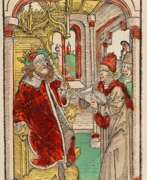

Werner Rolewinck (Latin: Wernerus Rolewinkius) was a German chronicler, historian, and theologian.
Werner Rolewinck was a Cartesian monk. His best known and most important work is Fasciculus temporum, a history from the creation of the world to Pope Sixtus IV. Already during his lifetime this work was republished many times in Latin, French, Dutch, and German. Drawing on major Christian historiographical sources such as Orosius and Eusebius, Fasciculus presents the history of the world in the form of a genealogy, a traditional historiographical structure dating back to late antiquity.
Another famous work by Rolewink is a description of the manners and customs of his homeland entitled De laude veteris Saxsoniæ nunc Westphaliæ dictæ.
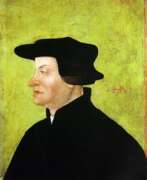

Huldrych or Ulrich Zwingli was a leader of the Reformation in Switzerland, born during a time of emerging Swiss patriotism and increasing criticism of the Swiss mercenary system. He attended the University of Vienna and the University of Basel, a scholarly center of Renaissance humanism. He continued his studies while he served as a pastor in Glarus and later in Einsiedeln, where he was influenced by the writings of Erasmus.
